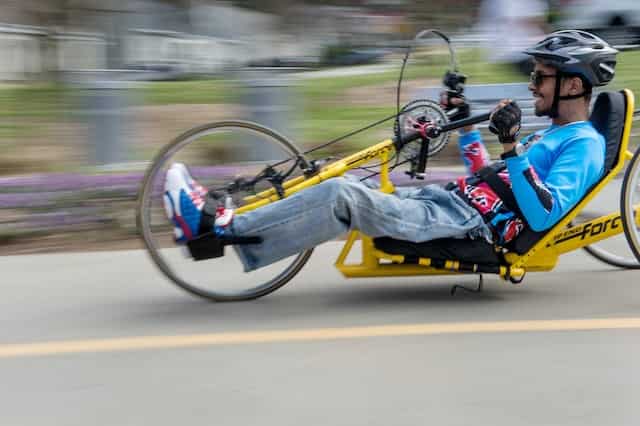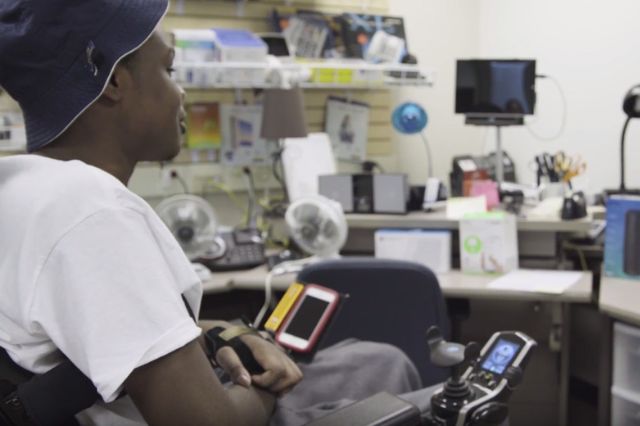Rehabilitation for Neurogenic Bladder & Incontinence
A comprehensive approach to bladder management for neurological-related injuries and conditions
The Urology Clinic at Shepherd Center offers a wide range of comprehensive rehabilitation services designed to address the broader impact of neurogenic bladder. Our goal is to provide specialized care to help prevent urinary tract infections (UTIs), preserve kidney health, minimize urological complications, and assist in achieving urinary continence.
Our clinic boasts a multidisciplinary team of highly skilled neurogenic bladder specialists, including urologists, and physical therapists. Each member of our team has extensive experience in managing complex urologic cases. With their expertise, we ensure personalized and compassionate care throughout every step of your journey, from evaluation to treatment and follow-up.
Urological Symptoms Associated with Neurogenic Bladder and Incontinence
Neurogenic bladder presents a range of symptoms that can vary from person to person. The primary indication of neurogenic bladder is urinary incontinence or difficulty in controlling urine flow. Other common symptoms that may arise include:
- Challenges completely emptying the bladder after urination.
- Difficulty initiating the urination process.
- Inability to perceive when the bladder is full.
- Frequent urination exceeding what is considered normal.
- Sudden and intense urges to empty the bladder.
- Urine leakage leading to unintentional urine release.
If you are encountering symptoms such as severe pain, blood in the urine, or an inability to urinate, you must seek immediate medical attention. We strongly advise you to prioritize a visit to urgent care or the emergency room rather than waiting for a scheduled appointment at the Urology Clinic.
What to Expect as a Patient in the Urology Clinic
Assessment and Evaluation
Our highly skilled urologists specialize in diagnosing neurogenic bladder and will conduct a thorough assessment to gain a comprehensive understanding of your condition. This may involve taking a detailed medical history, conducting a brief flow study, performing a pelvic floor examination, and discussing your symptoms.
Diagnosis
Following the assessment, we may recommend additional tests to confirm the diagnosis of neurogenic bladder. These may include bladder function tests such as video and water urodynamic studies, which provide valuable insights into how your bladder functions and how effectively it stores urine.
Established Care Plan for Bladder Management
Your care team will work with you through a tailored treatment plan to optimize bladder function, manage urinary incontinence, and enhance your overall quality of life. Regular follow-ups and discussions will ensure ongoing monitoring and adjustment of your treatment to address any new concerns or symptoms effectively.
Treatment Approaches for Neurogenic Bladder and Urinary Incontinence
Effective management of neurogenic bladder and urinary incontinence often does not require surgery and can be achieved through various non-invasive or minimally invasive treatment options. Working closely with your urologist and neurogenic bladder specialist, you can expect a comprehensive approach that addresses your specific needs. Some common treatments may include:
- Catheter Management
- Intermittent Catheterization
- Botox Injections
- Erectile Dysfunction Evaluation and Treatment
- Suprapubic Catheter Placements
- Electrical Stimulation and Pelvic Floor Exercises
- Medication
- Urethral Balking Agents
- Behavioral or Biofeedback Techniques
Appointments and Referrals for the Urology Clinic
Conveniently located within Shepherd Center in Atlanta, the Urology Clinic provides our patients easy access and free parking. As a dedicated one-stop shop for specialized urological care related to neurological injuries and conditions, we offer comprehensive services to improve bladder control and overall well-being.





